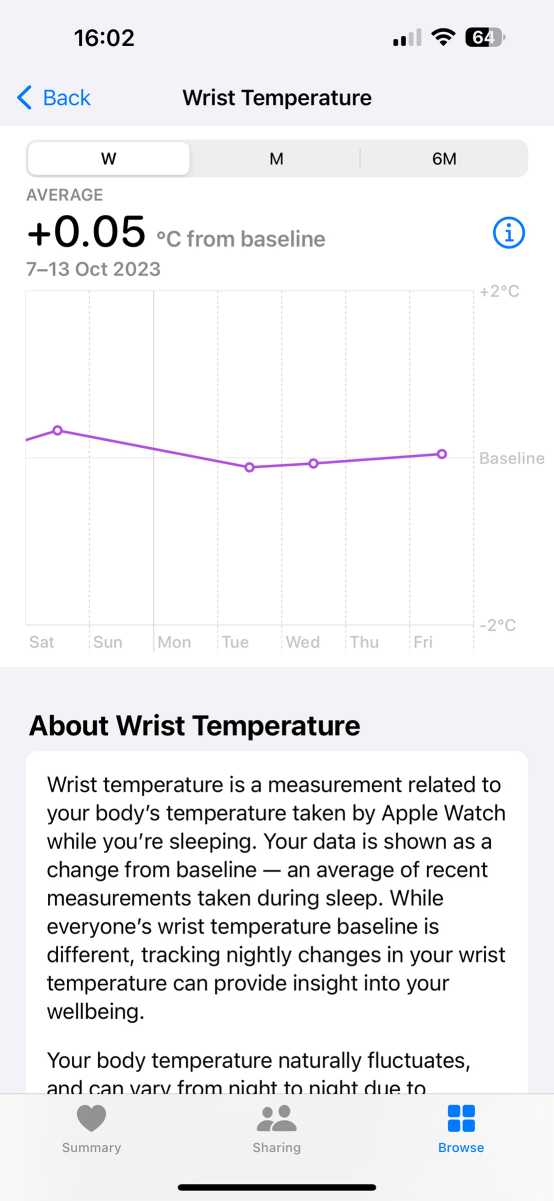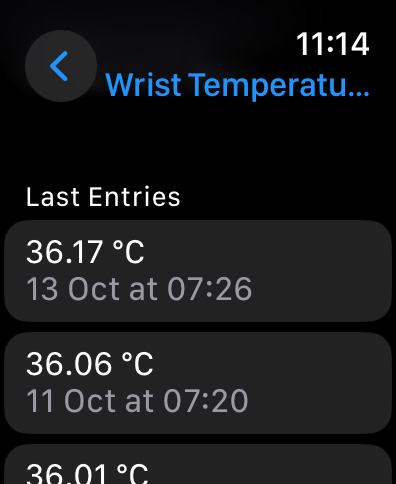Recent models of Apple Watch–the Series 8 and later, to be precise–come equipped with a temperature sensor. That might sound useful for a variety of health purposes, but in practice, it has quite a lot of limitations. One of which is that by default it doesn’t tell you your body temperature.
If you open the Health app on your iPhone and find the Body Measurements entry (there’s a search field under Browse) you’ll notice that wrist temperature trends are given in terms of their difference from the baseline. In the screenshot below, you’ll see this is given as “+0.05°C from baseline.” Very interesting, but what if you want to know the absolute temperature rather than the difference?

David Price / Foundry
Fortunately, that information is available, and it’s relatively easy to find—you just need to slog through a few menus. The trick is to look on the Apple Watch itself rather than the paired iPhone. Open Settings on your Apple Watch and scroll down until you start to see an alphabetically ordered list of apps (probably starting with Activity and App Store). Find Health in this list and tap it.
Now tap Health Data > Body Measurements > Wrist Temperature. You’ll see a list of recorded temperatures, beginning with the most recent. In the screenshot below you can see that the absolute temperature the last time I took a reading was 36.17°C (97.1°F).

David Price / Foundry
Note that there is another route to this data, but I find it slightly more circuitous. From the Health section of Settings, you can instead go to Devices, then select the correct Apple Watch before tapping Body Measurements > Wrist Temperature. This should bring you to the same information, but the problem is if you own a lot of Apple Watches (or test and review them as I do) then the list of models to choose from can be very long indeed. I would therefore recommend the first method outlined above.
Why can’t I just take my temperature right now?
There are some more limitations that it might be worth mentioning. The Apple Watch’s temperature sensor isn’t the equivalent of a digital thermometer, something you can use to take a spot check at any moment. Instead, it takes your temperature at a time of its choosing while you’re asleep. So when we look up the data using the method above, it still isn’t possible to determine your temperature right now. Whatever information you find is likely to be at least a few hours out of date.
What’s more, the Apple Watch is quite fussy about sample size. It won’t be sufficient to put the watch on for tonight’s sleep and then eagerly demand the data tomorrow morning: instead, you need to be wearing the Apple Watch for a few weeks in a row before the results start to appear. It’s designed to monitor long-term trends rather than single moments in time. But it’s an indication that Apple may allow the watch to show temperature readings in the future.




